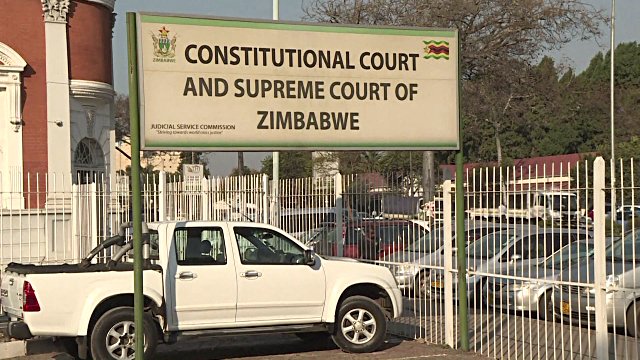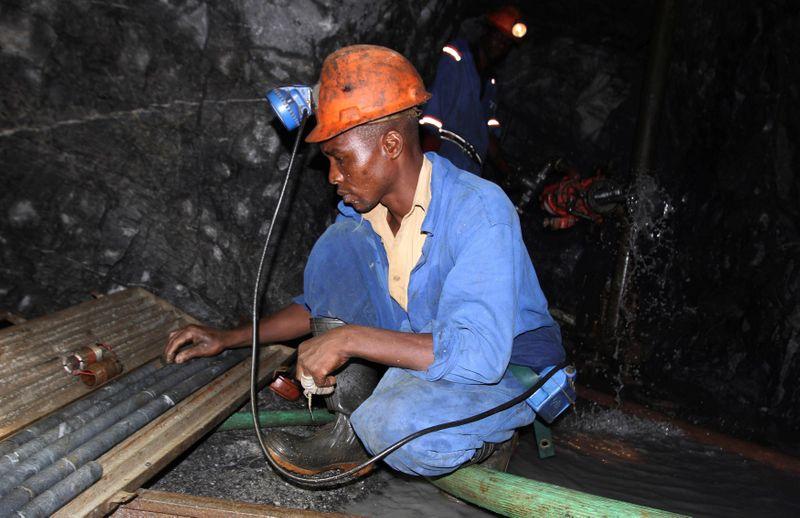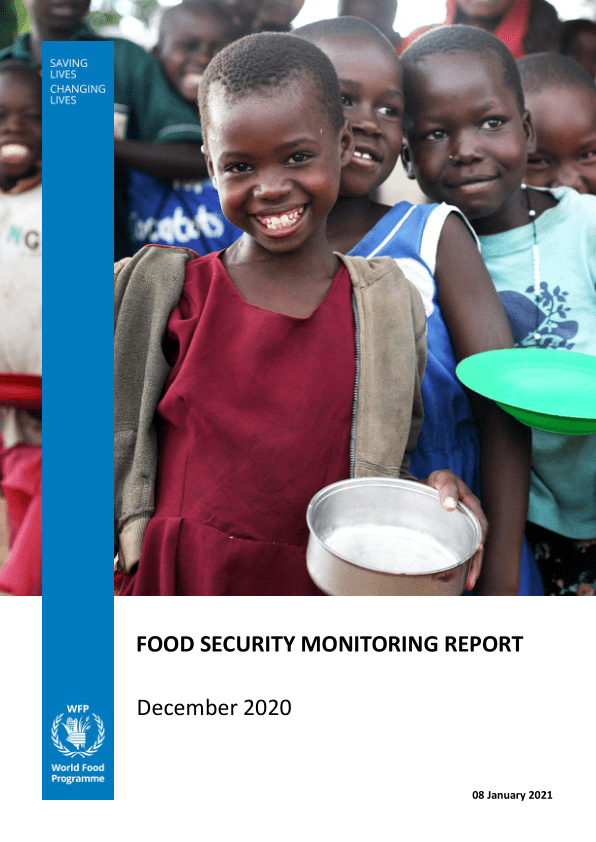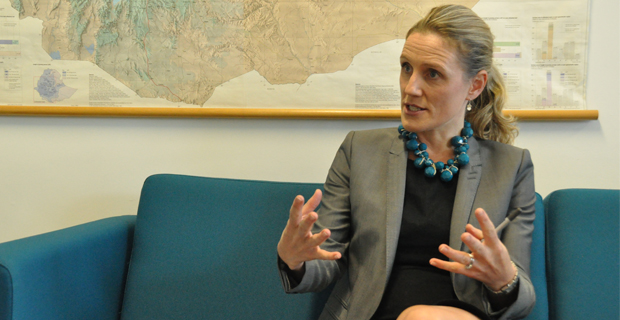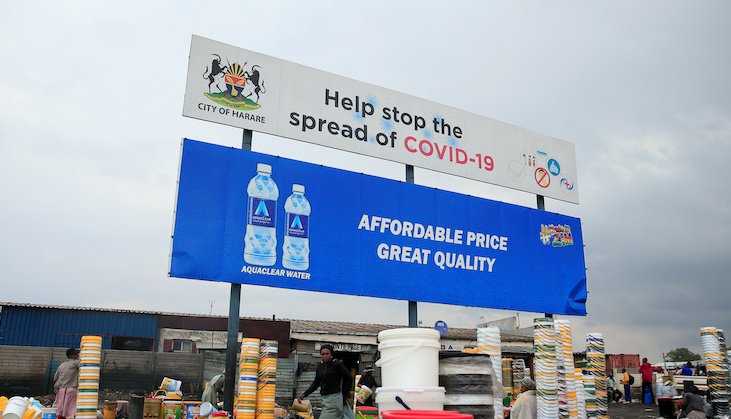
Containers and other goods are sold beneath a coronavirus disease (COVID-19) awareness billboard at a marketplace in Harare, Zimbabwe, 26 November 2020. REUTERS/Philimon Bulawayo
A rise in coronavirus cases in Zimbabwe has prompted President Emmerson Mnangagwa’s government to put the nation on a 30 day strict lockdown.
The Southern African country, which had had relatively low coronavirus infection rates since March 2020 when the first death was recorded, saw a rise in cases in December following citizens returning home from neighbouring South Africa for the festive season.
Announcing the stiff lockdown measures in Harare last week, vice-president and health minister Constantino Chiwenga said the country had seen a “surge in COVID-19 cases during the festive season”, with cases almost doubling in the past two months.
Only essential services including hospitals, pharmacies and supermarkets are being allowed to operate, with only essential staff allowed to go to work.
Even though airports remain open, land borders have been closed except for returning residents and essential cargo, impacting cross-border traders.
As of the 6 January, there were more than 17,000 coronavirus cases in Zimbabwe, claiming the lives of more than 400 people, according to the health ministry.
Fears for vulnerable communities
With most of Zimbabwe’s population employed in the informal sector, there are fears there could be widespread hunger as the government did not announce any plans to support citizens who will not be able to work during the lockdown.
Many people are grappling with economic hardships that have been worsened by the global pandemic.
In Zimbabwe, the informal sector dominates with 2.2 million or 76% of the country’s economically active people, according to the Zimbabwe National Statistics Agency (Zimstat) in its 2019 Labour Force and Child Labour Survey.
Zimbabwe Chamber of Informal Economy Associations secretary general Wisborn Malaya tells The Africa Report that informal traders who were yet to recover from the 2020 lockdown have been hit hard again this year, with no bailout packages available from the cash-strapped government.
The country’s economic crisis predates the coronavirus outbreak.
“Measures which have been put [in place] do not at all give any reprieve to informal traders. The government should have cushioned the vulnerable,” says Malaya.
Economist Nigel Chanakira argues it is crucial to impose lockdown measures along with safety nets to protect poor communities.
“The poor need support and subsidies if we elect to have shutdowns,” he explains.
No bailout packages in sight
Information ministry permanent secretary Nick Mangwana tells The Africa Report that he was not aware of any plans to help Zimbabweans during lockdown.
“I am not aware of such plans. If we all comply and do our best, then there is unlikely to be an extension of the lockdown,” he said.
The lockdown is hurting the income of many families, whose earnings have already been eroded by hyperinflation.
As of November 2020, the food poverty line for one poor person was Z$3,279 ($36), according to Zimstat.
Where is the plan?
Zimbabwe Human Rights Association director Dzikamai Bere says that the government must put human rights at the centre in its lockdown measures.
“Zimbabwe’s lockdown is a lockdown without a plan. No budget was announced to fight the pandemic,” he explains. “They are not paying attention to the question of livelihoods. They close the economy for the poor without giving them an option for survival.”
In March 2020 when the government imposed a 21-day hard lockdown, which was later extended by two weeks, the government pledged to provide stimulus packages to vulnerable people. But many claim they did not receive the funds.
Hopes on early vaccines fading from view
While other African countries including Rwanda and South Africa have announced plans to roll out vaccines to their citizens in the first and second quarters of 2021, the Zimbabwean government is yet to make such an announcement.
Donors, instead, are taking a leading role. The United Kingdom embassy in Zimbabwe has pledged to vaccinate three million people drawn from low-income communities in the country.
The United Nations Children’s Fund in October 2020 announced it was stockpiling over half a billion syringes to support poor countries with COVID-19 vaccines when they become available.
“The government is leaving this work to donors. The fact that there is no budget announcement for fighting COVID-19 is telling [us that] this is a nation outsourcing the health welfare of its citizens to donors,” says the Zimbabwe Human Rights Association’s Bere. “It is culpable negligence.”
No support
Fadzayi Mahere, spokesperson for the opposition MDC Alliance, says the latest rules do not deal with the complementary measures that are necessary to support communities during lockdown.
“If people must stay at home, they need support because they cannot fend for themselves,” she says. “Commanding the closure of the economy without the necessary supporting economic reliefs, medical and social measures is suicidal.”
Mahere says simply announcing lockdown rules to keep people at home without safety nets “is a command style rulership” that shows total disregard for people’s interests.



